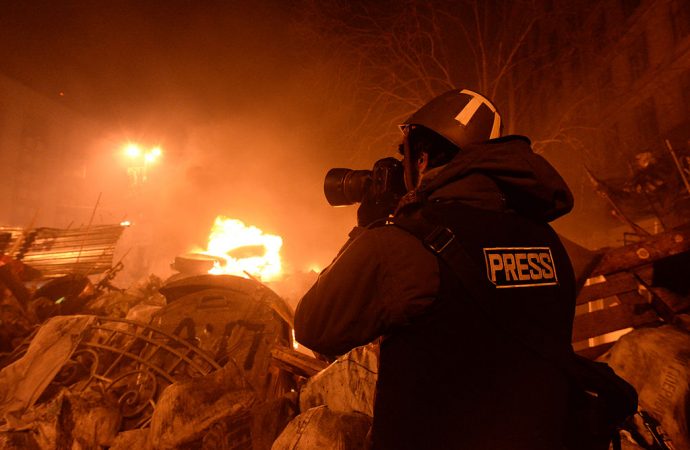May 3, 1993: The United Nations members sign the Declaration of Windhoek, in Namibia. The document encourages an independent and pluralistic press in African countries and channels funds to make this happen. In addition, the UN declares censorship a major violation of human rights and hurries leaders to release jailed journalists.
Twenty-five years later, the UN commemorates the World Press Freedom Day by paying special attention to the role of justice and law in establishing a safe environment for the Press. The chosen theme for 2018 is “Keeping Power in Check: Media, Justice and The Rule of Law”.
The most censored countries
But an “independent and pluralistic press” is a mirage for millions of citizens. In Eritrea, which ranks first in the list of the most censored countries, less than six percent of people have a cell phone and, those who do, have limited access to independent news sources. The government is the sole news and Internet provider and journalists constantly face imprisonment threats.
North Korea follows closely. Under the leadership of Kim Jong Un, cell phones are banned and Internet access is limited to the political elite. The Korean Central News Agency distributes and broadcasts almost all the news in the country.
In the list of the ten most censored countries, organized by the Committee to Protect Journalists, there is also space for Saudi Arabia, Ethiopia, Azerbaijan, Vietnam, Iran, China, Myanmar, and Cuba.
The deadliest countries
The Philippines may not have its name branded in this dishonorable list, but the threats and attacks to the media by the country’s President, Rodrigo Duterte, are no least dishonorable. During the twenty-two months of his administration, nine journalists were killed, and dozens have faced intimidation, threats, and harassment, making the Philippines the deadliest country for journalists in Asia.
In Syria, since the Arab Spring Revolution in 2011, over one hundred journalists have been murdered or killed in crossfire and dangerous assignments. This year, already two journalists and one media assistant died in the bloody field. In Afghanistan, this Monday was one of the deadliest for media agents. Nine journalists were killed in the Kabul’s bombings, while one BBC journalist died in a separate incident in Khost. Worldwide data shows that, since January, twenty-four journalists were killed and 176 are imprisoned.
The 2018 World Press Freedom Index, compiled by Reporters Without Borders, reflects “hostility towards the media, openly encouraged by political leaders, and the efforts of authoritarian regimes to export their vision of journalism pose a threat to democracies.”
Several leaders of democratic countries no longer see the media as pillars of democracy but have instead adopted a hostile speech towards journalists. The United States of America, for instance, has fallen two positions, to the 45th place, in the World Press Freedom Index, under the presidency of Donald Trump, who labeled the media an “enemy of the American people”.
References:
CPJ: 10 Most Censored Countries. (retrieved on 03/05/2018)
Reporters Without Borders: For Freedom of Information.
Rappler – Speak truth to power, keep power in check
Image Credit: By Mstyslav Chernov/Unframe/http://www.unframe.com/ [CC BY-SA 3.0], from Wikimedia Commons





